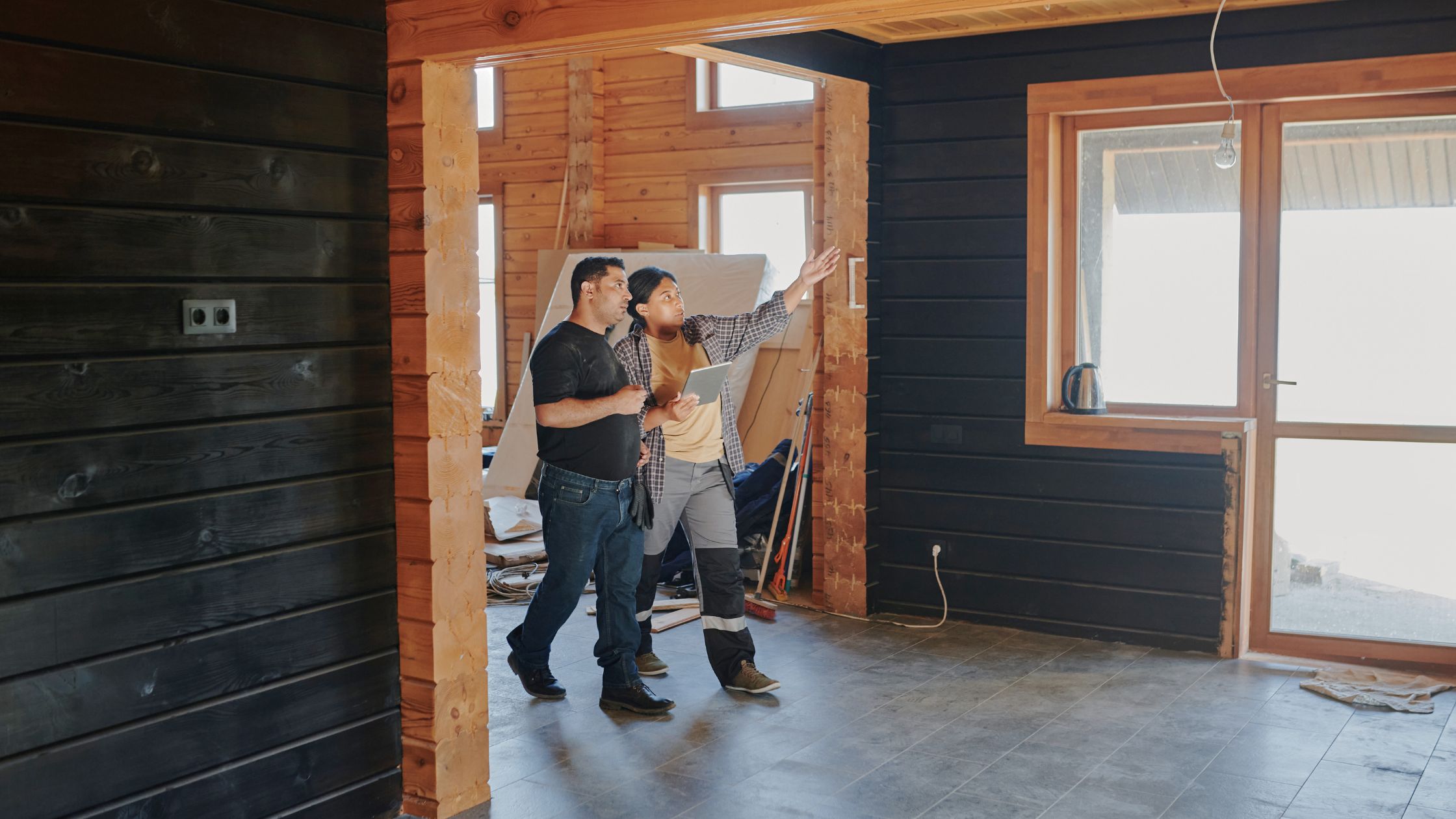DIY or Hire a Pro? How to Decide the Best Approach for Your Next Home Project
Introduction
Deciding whether to do a DIY home project or hire professionals can be a tough choice for any homeowner. This decision is important because it affects not only the cost but also the quality and safety of your home improvement projects. This article, “DIY or Hire a Pro? How to Decide the Best Approach for Your Next Home Project,” aims to help you make the right choice.
We’ll explore the benefits of doing it yourself, such as feeling fulfilled and saving money. We’ll also discuss situations where it might be better to bring in professionals because of their skills or the complexity of the task. You’ll learn how to evaluate costs, create budgets, and assess your own abilities and how much time you can dedicate to the project.
By thinking about important things like safety, permits, and how complicated the project is, you’ll be more ready to find a balance between having control, feeling satisfied, and being practical in your home improvement journey.
Understanding the DIY Approach
Starting a do-it-yourself (DIY) project can be incredibly rewarding. The benefits of DIY projects go beyond just saving money; they provide a special chance for personal satisfaction and growth in home improvement skills. Getting hands-on with your living space lets you add your personal touch to your home, making it a place that truly represents your style and preferences.
Advantages of DIY Projects
Here are some reasons why people choose the DIY route:
- Cost Savings: Doing a project yourself can save you a lot on labor costs. By not hiring professionals, homeowners often find they can spend more on high-quality materials or even take on additional projects.
- Personal Fulfillment: There’s something deeply satisfying about completing a project with your own hands. Every stage, from planning to execution, becomes proof of what you can achieve, bringing you a sense of accomplishment and pride.
- Skill Development: Each project teaches you new skills and knowledge, making you better equipped to handle future tasks. This ongoing learning journey can be both empowering and motivating.
Beginner-Friendly DIY Tasks
Not all home improvement tasks need expert knowledge or advanced skills. Here are some common projects that many homeowners find manageable:
- Painting: Giving a room a fresh coat of paint is one of the easiest ways to make a big difference without needing professional help.
- Minor Plumbing Fixes: Tasks like replacing faucets or fixing leaky pipes can usually be done by following online tutorials or guides.
- Basic Electrical Work: With proper caution and preparation, beginners can safely carry out tasks such as replacing light fixtures or installing dimmer switches. For instance, upgrading from an outdated ceiling light to something more modern is a simple yet effective project that can significantly enhance your home’s aesthetic.
Taking on these beginner-friendly projects not only enhances your home but also boosts your confidence for tackling more complex tasks in the future. When you engage in DIY activities, you have control over the creative process while simultaneously improving the value and functionality of your living space.
Why You Should Consider Hiring Professionals
Deciding whether to hire a professional for your home project can be a tough choice. However, there are several clear benefits that come with bringing in an expert, especially when it comes to complicated renovations.
When Should You Hire a Professional?
Some situations call for the knowledge and skills of a professional. Here are a few examples:
- Complex Renovations: If your project involves making significant changes to your home’s structure, such as removing walls or redesigning rooms, it’s best to hire contractors. They understand building codes and safety regulations inside out, ensuring everything is done by the book.
- Specialized Skills: Certain tasks require specific expertise that only trained professionals possess. For instance, if you need extensive electrical work done or have intricate plumbing issues to tackle, it’s wise to bring in experts who can handle these challenges efficiently.
- Hazardous Materials: If your renovation involves dealing with dangerous substances like asbestos or lead paint, it’s crucial to have professionals on board. They have the necessary training and protective gear to handle such materials safely.
How Can Professionals Save You Time?
One of the biggest advantages of hiring professionals is the time they can save you. Unlike DIY projects that often drag on due to trial-and-error learning processes:
- Efficiency: Professionals know their craft well and have a systematic approach to getting things done. This enables them to complete tasks quickly without compromising quality.
- Project Management: Contractors typically take charge of all aspects of the job – from sourcing materials to scheduling subcontractors. This frees homeowners from potential headaches associated with managing multiple parts of a renovation.
- Focus on What Matters: By letting professionals handle complex projects, homeowners can continue focusing on their daily responsibilities without sacrificing personal time and energy.
Hiring professionals offers peace of mind through skilled workmanship and timely project completion. Knowing when to utilize this option ensures both the success and safety of your home improvements.
Evaluating Costs and Budgeting Strategies
When dealing with the financial aspects of home improvement, it’s important to carefully consider both the DIY and professional options. Each route has its own costs that homeowners need to think about in order to avoid any unpleasant surprises.
DIY Costs:
- Material Prices: DIY projects often require purchasing materials yourself, which can be cost-effective if you find deals or use leftover supplies.
- Tools and Equipment: While basic tools might be at hand, specialized equipment could necessitate rental or purchase, adding to expenses.
- Learning Curve: Mistakes during a project are common for novices. Corrective actions might inflate costs beyond initial estimates.
Professional Expenses:
- Labor Fees: Hiring professionals involves paying for their expertise and time, which can account for a significant portion of your budget.
- Quality Assurance: The work quality often results in fewer long-term maintenance costs, potentially saving money over time.
- Permits and Inspections: Professionals manage necessary permits and inspections, ensuring compliance with local regulations, which can prevent costly fines or rework.
Hidden Costs to Consider
Both approaches may include hidden expenses:
- DIY: Unforeseen challenges like incorrect measurements or unexpected repairs can escalate costs.
- Professional: Potential delays due to contractor schedules or unforeseen complications might increase project duration and expense.
Creating a Realistic Budget Plan
A well-crafted budget plan mitigates financial risks in home improvement endeavors:
- Define Project Scope: Clearly outline what the project entails and identify phases that may incur separate costs.
- Research Costs: Gather quotes from contractors for professional work or price out materials for DIY tasks.
- Factor in Contingencies: Allocate 10%–20% extra funds to address unexpected expenses.
- Track Expenses Rigorously: Maintain detailed records of all expenditures to keep the project within budget.
Being financially careful is crucial when deciding whether to do it yourself or hire a professional. Understanding potential costs helps homeowners manage their projects better and make informed choices that fit their financial situation.
Assessing Your Skills and Time Commitment
Understanding your personal capabilities in home renovation is crucial when deciding between a DIY project and hiring a professional. Start by honestly evaluating your skills. Ask yourself these questions:
1. Technical Knowledge
Do you have the necessary technical skills for the task? Projects involving basic carpentry, painting, or minor plumbing repairs might fall within your skill set. However, tasks requiring advanced electrical work or structural alterations necessitate a higher level of expertise.
2. Experience Level
Reflect on past projects you have completed. Were they similar in complexity to the current one? Experience can significantly influence your ability to deliver quality results without errors.
3. Learning Ability
Are you willing and able to learn new techniques quickly? DIY projects often require learning as you go, which can be both rewarding and challenging.
Time commitment is equally important in deciding whether to take on a DIY project or hire someone. Look at your schedule and lifestyle:
1. Available Hours
How many hours per week can you devote to the project? Larger projects can extend over weeks or even months, potentially impacting your daily routine.
2. Deadline Flexibility
Is there a specific timeline for completing the project? Some projects may allow for flexibility, while others might need completion within a fixed period due to external factors like weather conditions or family events.
3. Disruption Tolerance
Consider how much disruption you’re willing to endure. Major renovations can lead to temporary chaos in living spaces, affecting day-to-day life.
By assessing these aspects, you’ll gain a realistic understanding of what you can achieve within your personal limits. This approach ensures that the decision-making process aligns with both your skill set and available time, ultimately leading to satisfaction and successful project completion.
Considering Safety, Permits, and Project Complexity
When starting a home improvement project, it’s important to understand the safety implications. Some tasks can be very dangerous if not done correctly. For example, projects involving electrical systems or structural changes can cause serious injuries or damage to property if not done properly. This is where deciding between DIY and hiring professionals becomes an important factor. Professionals have the knowledge and equipment to handle these risks effectively and make sure the work meets safety standards.
Another important aspect of home projects is understanding local regulations. Certain renovations may need permits, especially those that change structural elements or involve significant plumbing or electrical work. Not getting the required permits can lead to fines and make it harder to sell your property in the future. To find out if you need permits for your project, you should check local building codes or ask professionals who are familiar with these requirements.
To figure out whether to do the project yourself or hire a professional, it’s important to know the difference between simple and complex tasks:
- Simple Tasks: Painting a room, installing shelves, or replacing a faucet are often manageable for homeowners with basic skills and tools.
- Complex Undertakings: Projects like roof repairs, major kitchen remodels, or installations requiring new wiring demand advanced expertise that professionals provide.
Knowing these differences will help you make better decisions about when you need professional help for safety and compliance reasons. Balancing what you can do with what the task requires will ensure that the project gets done effectively and reduce the chances of making expensive mistakes.
Making an Informed Decision: Balancing Control, Satisfaction, and Practicality
Weighing the pros and cons of DIY versus hiring professionals is essential for choosing the best approach for your next home project. Several key factors guide this decision:
- Goals and Objectives: Define what you hope to achieve with your project. Is it a simple upgrade or a comprehensive renovation? Your goals will influence whether DIY efforts meet your needs or if professional expertise is warranted.
- Resources Available: Consider your budget, tools, and materials. A well-equipped toolbox might make DIY feasible, while limited resources could necessitate professional intervention.
- Skill Assessment: Evaluate your abilities against the complexity of the task. While enthusiastic novices may tackle painting or minor repairs, intricate projects like electrical rewiring demand seasoned professionals.
- Time Constraints: Gauge the time you can realistically allocate. A demanding schedule might mean opting for professional assistance to ensure timely completion without sacrificing quality.
- Satisfaction and Control: DIY offers personal satisfaction and control over the process but comes with risks of errors. Professionals provide reliability and expertise but may limit personalization.
Balancing these considerations helps determine whether to embark on a DIY journey or enlist professional aid, aligning with both practicalities and personal aspirations in your home improvement endeavors.
news via inbox
Nulla turp dis cursus. Integer liberos euismod pretium faucibua







